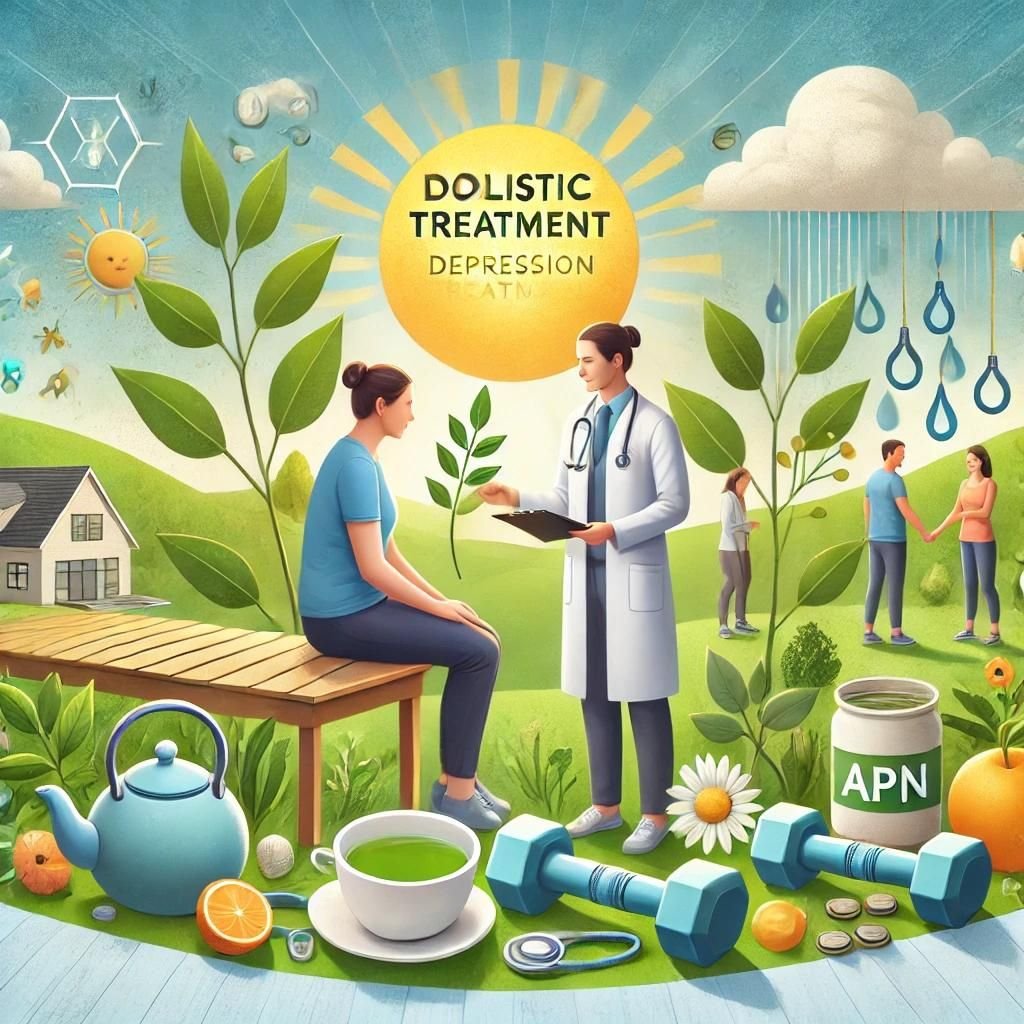Introduction
Psychological wellness has become a focal point in today’s fast-paced world, with the daily stresses and global events contributing to a rise in mental health challenges. Among these challenges, depression stands out as one of the most prevalent conditions, affecting millions worldwide. In the pursuit of effective treatment and holistic well-being, the role of a Depression Treatment APN (Advanced Practice Nurse) specializing in depression is invaluable. This article delves into the insights and recommendations of a Depression Treatment APN, highlighting a multifaceted approach to improving mental wellness.
Understanding the Impact of Depression
Depression is a complex mood disorder characterized by a range of symptoms from persistent sadness to significant disruptions in daily life activities. It is the leading cause of disability globally, affecting over 300 million people. Recognizing the extensive reach of depression is the first step toward effective management. A Depression Treatment APN emphasizes addressing the multifaceted impact of depression on an individual’s personal life, relationships, career, and overall quality of life.
Depression Treatment APN: A Holistic Approach
Holistic Patient Care
An APN specializing in depression adopts a holistic approach to patient care, looking beyond medication and therapy. This approach involves considering factors such as nutrition, lifestyle, and the patient’s environment. The APN collaborates with the patient to develop a personalized treatment plan, integrating various strategies to promote healing and resilience.
Natural Remedies and Lifestyle Changes
Natural remedies and lifestyle modifications are gaining attention for their potential to alleviate depression symptoms. The Depression Treatment APN recommends several natural approaches that can complement traditional treatments:
Green Tea for Stress Reduction
Research suggests that green tea has positive effects on the brain due to its bioactive components, particularly L-theanine. This amino acid can enhance mental function and support a balanced mood, making green tea a valuable addition to a comprehensive depression management plan.
Reducing Cortisol through Lifestyle Changes
Cortisol, the body’s primary stress hormone, plays a significant role in depression. Elevated cortisol levels can contribute to the development and persistence of depressive symptoms. The APN emphasizes the importance of stress-reduction techniques and lifestyle changes, such as mindfulness practices, to lower cortisol levels and manage stress effectively.
Exercise as a Mood Enhancer
Regular physical activity is a powerful ally in the fight against depression. Exercise triggers the release of endorphins, the body’s natural mood lifters, providing a sense of accomplishment and improving self-esteem. The APN advocates for exercise not just as a fitness routine but as a therapeutic tool to enhance mental well-being.
Vitamin D’s Role in Seasonal Affective Disorder
Sunlight is a natural source of Vitamin D, essential for various bodily functions, including mood regulation. The APN recommends outdoor activities to increase Vitamin D levels, particularly for those affected by Seasonal Affective Disorder (SAD). For others, Vitamin D supplementation can help maintain optimal levels and support mental health.
The Potential Impact of Fasting on Depression
Recent studies suggest that intermittent fasting may have positive effects on brain function and mental health. Although this area requires further research, the APN is exploring fasting as an adjunct to conventional depression treatments. Fasting should be approached cautiously and tailored to individual health needs and goals.
Professional Guidance and Support
Therapy and Support Groups
Professional intervention is crucial in combating depression. Whether individual or group-based, therapy provides a safe space to address underlying issues and develop coping strategies. The APN encourages those struggling with depression to seek professional help and build a support system that fosters understanding and encouragement.
Mental Health Therapy Options
Cognitive Behavioral Therapy (CBT) is one of the most effective forms of therapy for depression. It aims to identify and change negative thought patterns, altering the associated emotions and behaviors. Support groups offer a community of individuals who share similar experiences and can provide empathy, advice, and support.
Cultivating a Support System
The APN highlights the importance of surrounding oneself with a nurturing support system. This includes friends, family, and professionals who can provide practical assistance and emotional support. Building a support system is a collaborative effort that requires open communication and mutual understanding.
Conclusion
The path to recovery from depression is multifaceted, requiring professional guidance, natural remedies, lifestyle changes, and dedicated support. The role of a Depression Treatment APN is vital in guiding individuals through their mental health journeys. By adopting a comprehensive approach that considers the interconnectedness of body and mind, it is possible to enhance mental wellness and cultivate a life that thrives against the backdrop of depression.
Call to Action
Seeking treatment for depression is an act of self-compassion and courage. If you or someone you know is struggling with depression, reach out to a qualified professional or an Advanced Practice Nurse specializing in mental health. Sharing this article could inspire others to take an active interest in their mental well-being and seek the empowerment they deserve. The journey to mental wellness is ongoing, but with the right tools and support, it is achievable.


